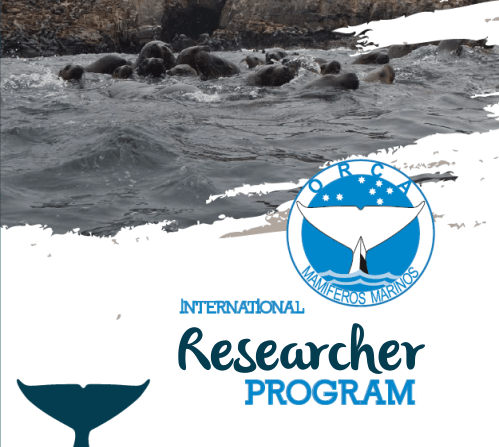|
Little is known about marine mammal population and health in
the Eastern South Pacific. Our research programs are part of a unique outlook of marine mammals, penguins and sea turtles along the Peruvian coast, providing vital information for the Stranding Network that ORCA leads in Peru. At the same time, our findings are used for educational purposes, contributing with knowledge and experiences for the local community in need of conservation actions.
The International Associate Researcher Program is suitable to students or professionals eager to get involved in research, either for undergraduate or graduate thesis projects, or for developing a career line in marine sciences. In order to apply it is a pre-requisite to have marine science background, either in theory or field work, therefore we strongly recommend to take our International Internship Program prior to getting enrolled as an Associate Researcher. As with all our International Participation Programs, this one has a participation cost that support ORCA research and conservation activities in Peru.

What do I need to do my thesis or a research with ORCA?
For you to do your thesis or a research with ORCA, the first step is to become an Intern with a research scope, either with us or withsimilar programs, or to have previous experiences, training and acquired research abitities
supported by a proven background. Once applying, you get to decide which kind of
research you want to do according to your professional interests, knowledge and future
projection. Having done this, you’ll have to apply to become an Associated Researcher,
which has a greater responsibility, because you assume the lead of a research aimed to
have results for a solid publication.
Once you become a participant of ORCA, you’ll be able to discover a lot more about your
own career and its relation with marine mammals. ORCA develops and directs a wide
range of research topics, like medical, biological, educational, social, environmental and
fisheries-related research. We conduct an average of 15 research lines per year, having a
lot to do. It’s up to you, to your creativity, to your dedication and your interest.
ORCA covers a broad spectrum of research topics, here are some of the research topics you can pick upon our dayly work with the ocean:
• Animal health.
• Anatomy.
• Acoustic disruptors.
• Clinical procedures.
• Clinical pathology.
• Cummulative effects of human impact.
• Degenerative diseases.
• Environmental assessment.
• Epidemiology of virosis.
• Ethology protocols for rehabilitation.
• Fisheries interactions.
• Forensic medicine.
• Health population assessment
• Human consumption.
• Infectious diseases.
• Marine ecology.
• Medical treatments.
• New diseases characterization.
• Pathology.
• Psychology and cognition.
• Pollutants.
• Public health risks.
• Secondary bacteremias.
• Species identification.
• Species distribution.
• Strandings assessment.
Where to send inquiries?
Please contact us by email to: inforca@orca.org.pe
Marine mammalogy and ocean conservation is constantly under construction
especially in a poorly known location like the Peruvian coast, and
particularly, from the scope of animal-public-environmental health. All of
our data goes towards the lenses of health as that is our main focus.
You are welcome to join us!
ORCA
"Rescue, Education, Science and
Conservation
Protecting Marine Life in
the Eastern South Pacific"
OCEANIZE YOUR LIFE!
|

















